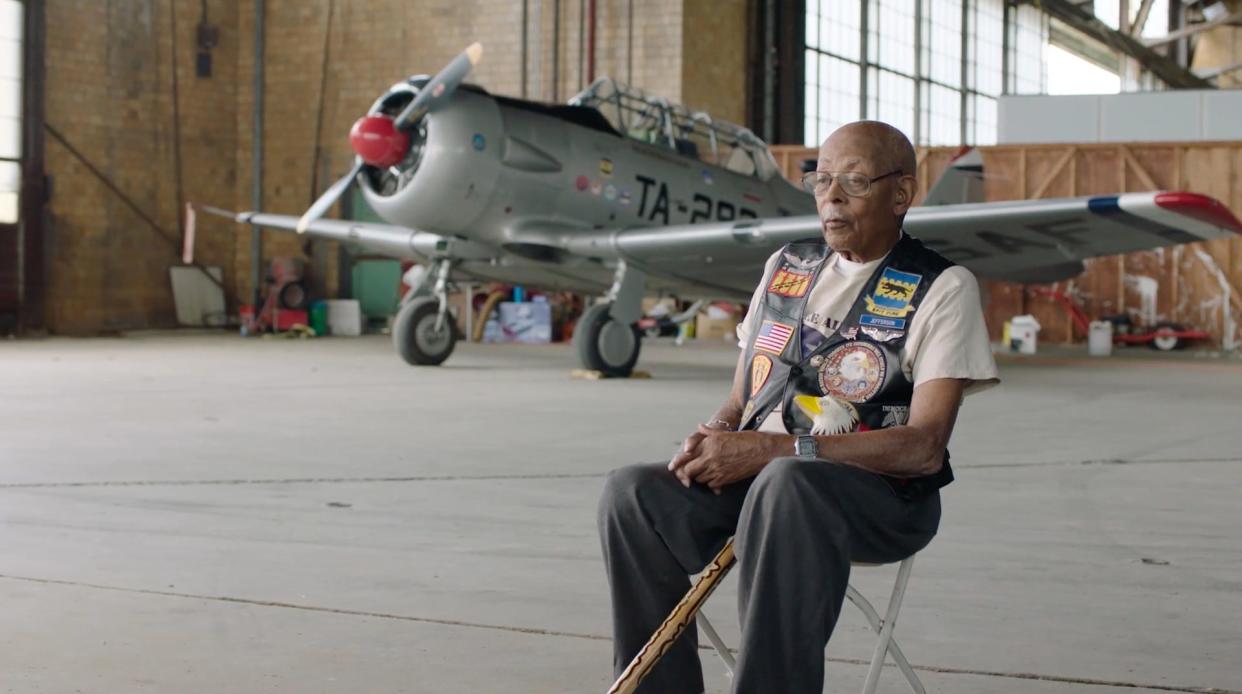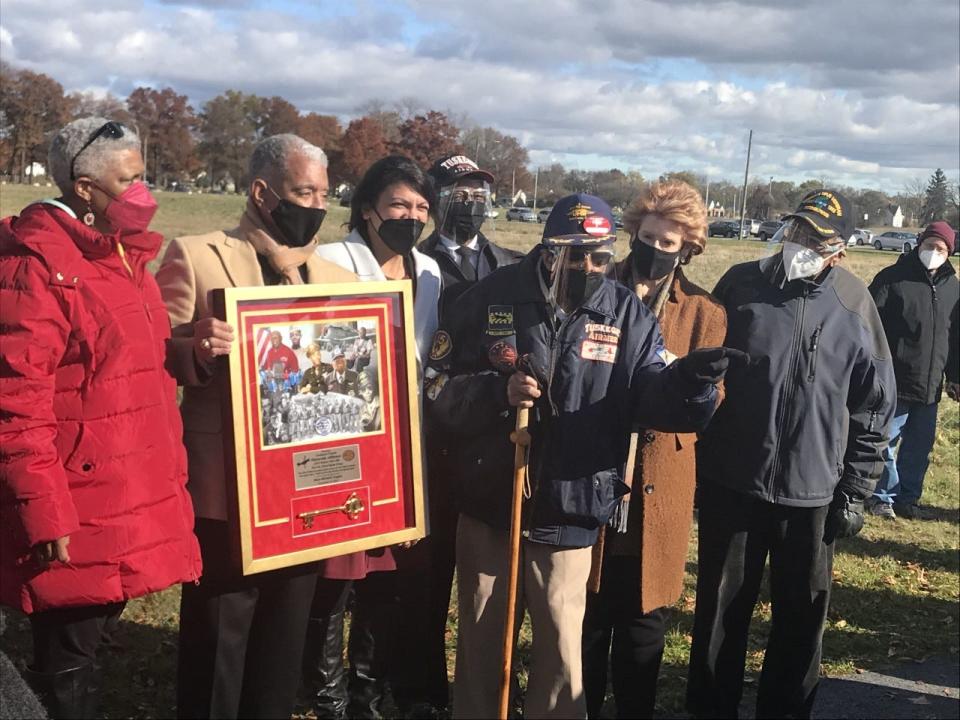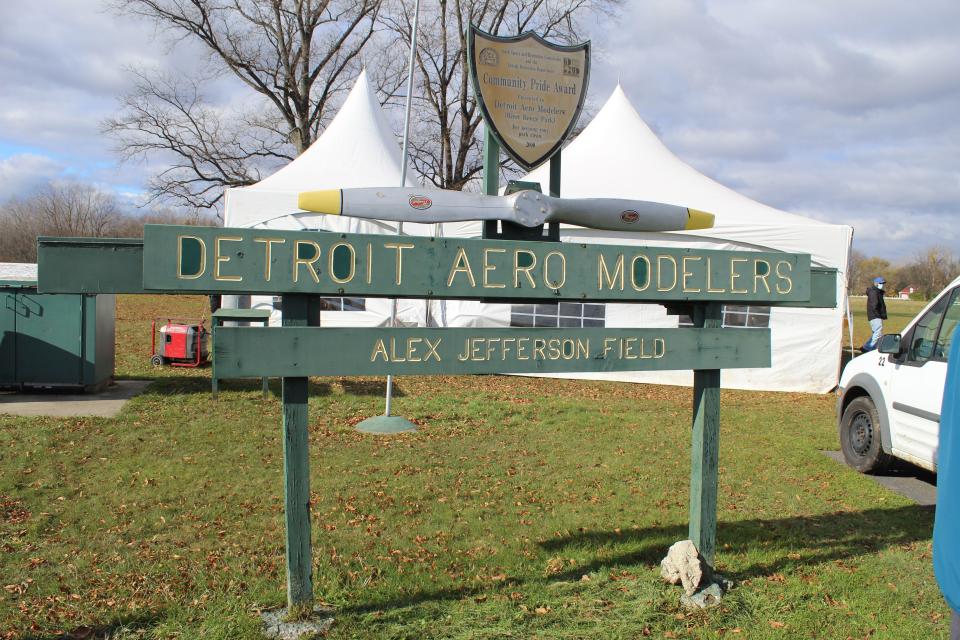Tuskegee Airman, lifelong Detroiter Alexander Jefferson dies at 100

- Oops!Something went wrong.Please try again later.
- Oops!Something went wrong.Please try again later.
Retired Lt. Col. Alexander Jefferson, a member of the Tuskegee Airmen, World War II prisoner of war and lifelong Detroiter, died Wednesday.
He was 100 years old.
The Tuskegee Airmen were the nation's first African American military pilots, and Jefferson was among the first to escort bombers in WWII.
Jefferson was honored on his 100th birthday in November as Detroit officials awarded him a key to the city, shared plans to construct Lt. Col. Alexander Jefferson Plaza and rededicated Jefferson Field in Rouge Park, where he played as a child and flew model airplanes.
Related: Detroit celebrates Tuskegee Airman's 100th birthday, rededicates Jefferson Field
A Detroit native, Jefferson attended Craft Elementary School, Condon Intermediate School and Chadsey High School. He earned a bachelor’s degree from Clark College in Atlanta, did graduate work in chemistry at Howard University and received a master’s degree in education from Wayne State University.
He graduated from Tuskegee Army Air Field’s pilot training in 1944, followed by combat training at Selfridge airfield in Harrison Township.
He served in World War II as a P-51 fighter pilot with the 332nd Fighter Group-301st Fighter Squadron in Ramitelli, Italy, later called the “Red Tails.”
Jefferson flew 18 missions before being shot down and held as a prisoner in Poland for eight months in 1944-45.
He was honorably discharged from active duty in 1947 and retired from the reserves in 1969 with the rank of lieutenant colonel.

“Col. Jefferson not only represented the best of Detroit and our nation, he represented the very best of humanity,” said Mayor Mike Duggan. “As a member of the Tuskegee Airmen, he helped to win the war, and despite spending eight months as a prisoner of war, he emerged with his same kindness and generosity of spirit. He came back to Detroit to continue his service as an educator and made a lasting impact on countless young lives. He is profoundly deserving of the recognition he will receive when the plaza named in his honor opens next year. Our city and our world are better places because of Lt. Col. Alexander Jefferson."
Following the war, Jefferson was a U.S. Postal Service mail carrier, then became a Detroit public schools science teacher. He retired as an assistant principal in 1979.
Rochelle Riley, Detroit's director of arts and culture and a former Detroit Free Press columnist who wrote extensively about Jefferson over the years, called him an American hero.
“The lieutenant colonel represented the best of our country, of our state and of our city,” she said. “He was one of the smartest people I’d ever met, a great raconteur whose stories made me swell with pride. He helped save the world, and I am so glad that I was in a position to honor him. My heart is broken.”

In retirement, Jefferson spent time inspiring youth and sharing stories about the Tuskegee Airmen.
“We’ve lost a great American patriarch, a hero and African American man who withstood racial prejudice, who did a job almost perfectly in fighting the war, World War II and he should be remembered for his service to the freedom of the United States,” said Dr. Brian Smith, president and treasurer of the Tuskegee Airmen National Museum and director of youth programs for the Detroit Chapter of Tuskegee Airmen Inc.

He was an active member in various church, educational and alumni organizations and is one of the founders of the Detroit Chapter of the Tuskegee Airmen — the original chapter -— and a member of the Tuskegee Airmen Speaker Bureau, which involved public appearances and many interviews.
Among his many honors, Jefferson was awarded the Purple Heart, Air Force Achievement Medal, POW medal, American Defense Service Medal, World War II Victory Medal, National Defense Reserve Medal, Armed Forces Reserve Medal, Bronze Star and in 1995 was inducted into the Michigan Aviation Hall of Fame.
The Congressional Gold Medal was presented to Jefferson and the Tuskegee Airmen in 2007 by President George W. Bush.
“Colonel Jefferson is a true hero. He was larger than life. He led an exemplary life. Everything he did was giving back to the community,” said Kenneth Thomas, president of the Detroit Chapter of the Tuskegee Airmen, who said the organization started in Jefferson’s Detroit basement in 1972.

The Tuskegee Airmen is now a nationwide organization with more than 60 chapters around the country that work to introduce youth to the world of aviation.
Jefferson was the last surviving member of the founding group that established the Detroit hapter of the Tuskegee Airmen.
“When he came back, he came back to another war. A war of segregation," Thomas said. "He fought that with all he could and giving back to the youth through his teaching with the Public School System, as well as motivating youth into the world of aviation and aerospace."
His body will lie in state at the Charles H. Wright Museum from 3- 8 p.m. in the Rotunda of the museum July 7.
Public viewing:
Time: 3 -8 p.m. July 7
Where: Charles H. Wright Museum, 315 E. Warren Ave in Detroit in the Rotunda
Time: 9 a.m. to 9 p.m. July 8
Where: James H. Cole Home for Funerals, Inc., 16100 Schaefer in Detroit
(Personal testimonies will be livestreamed 6-8 p.m. on the funeral home website.)
Family Hour/Funeral:
Time: 10 a.m. July 9 family hour; 11 a.m. July 9 funeral
Where: Hope United Methodist Church, 26275 Northwestern Highway in Southfield
Brendel Hightower is an assistant editor at the Detroit Free Press. Contact her at bhightower@freepress.com.
This article originally appeared on Detroit Free Press: Tuskegee Airman, WWII prisoner of war from Detroit dies at 100

